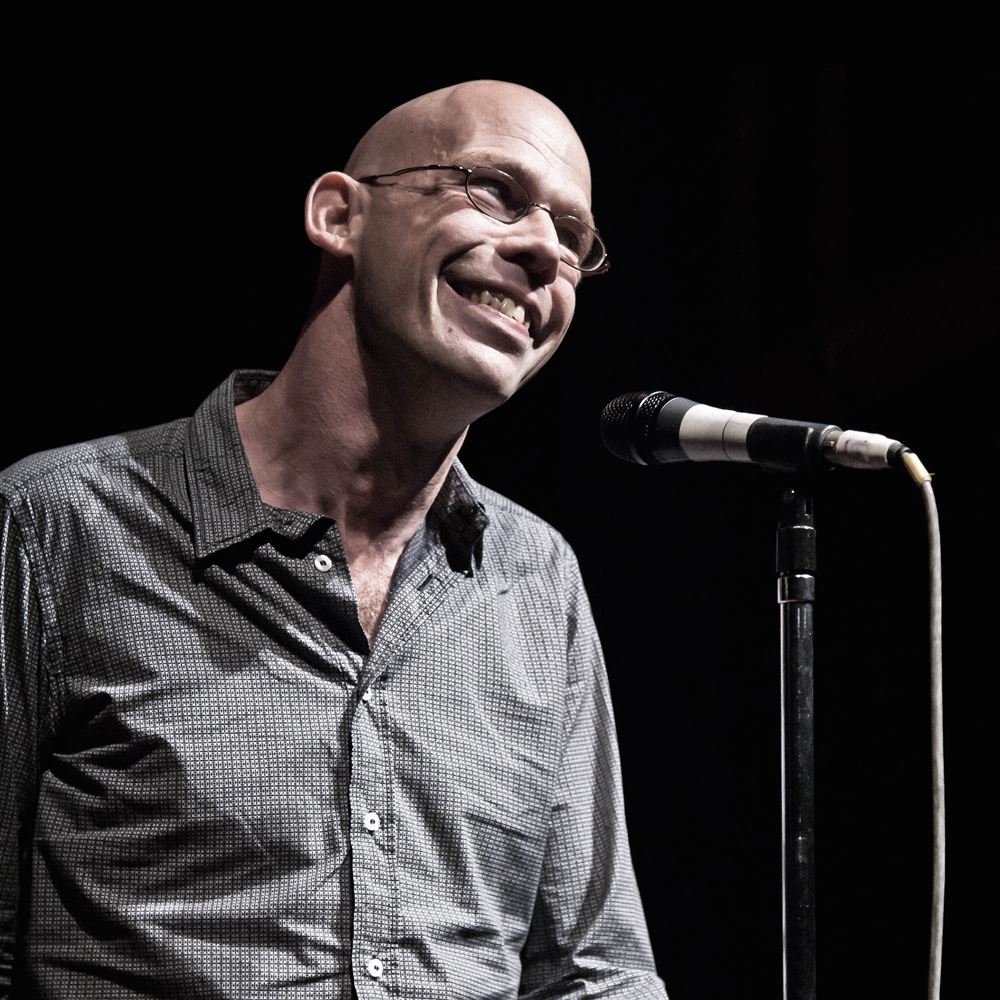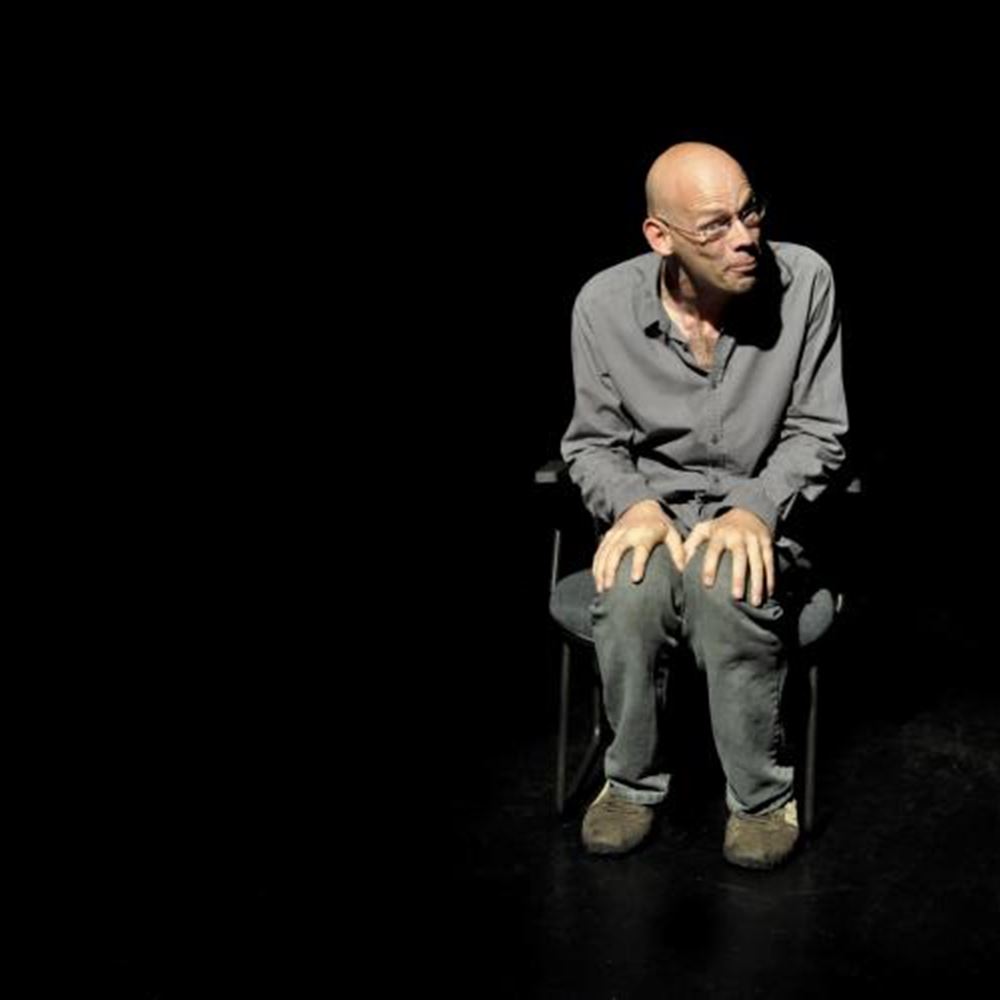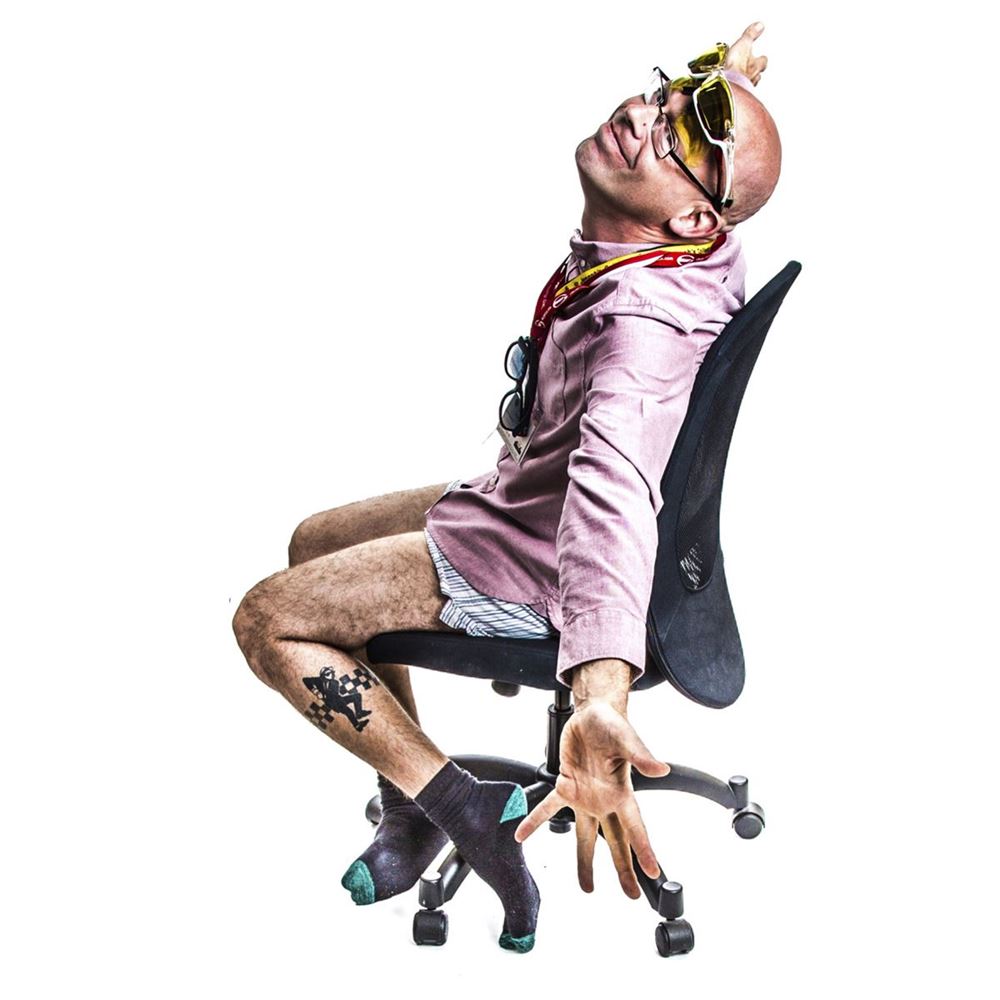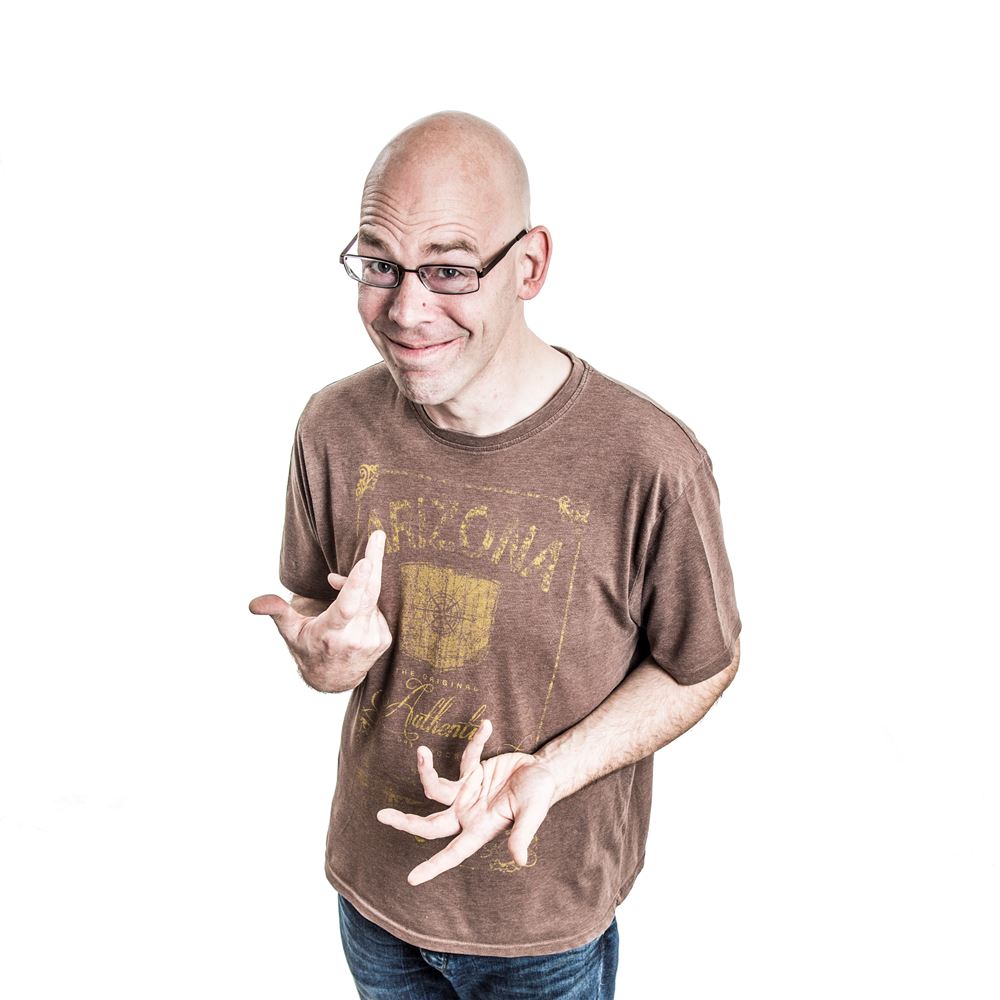
Tuesday, 15 November
Artist Spotlight
Love Theatre Day
For this year's Love Theatre Day, Live & Local has chatted to Rob Gee. Mental health nurse turned stand-up poet, Rob has won numeorus poetry slams, including the Edinburgh Slam, BBC Two’s Why Poetry Matters Slam, the Arts Council's LitUp Slam and the Orlando Poetry Smackdown, as well as over twenty awards for his solo shows. He leads creative workshops in schools, prisons and mental health settings, with all ages and ability ranges, and regularly performs at mental health-related events.
What is the biggest challenge of making theatre and spoken word art?
Getting that first draft out. I really enjoy editing, but I find the first draft quite difficult, because you have to switch off your quality control or it won’t get written. My first drafts are rarely anything to be proud of.
Sometimes, in the drafting process, you just have to keep the faith. Whenever I’ve decorated a room, there’s been a stage at some point during the decorating process when I become convinced the whole thing’s a huge mistake. It’s a bit like that with writing a show.

What is the creative process like when you develop a new show?
It’s all about having a great idea. If a piece of writing has a good idea behind it, it’s much easier to keep the faith even if your first draft isn’t very good. Once I’m ready to learn it, I always do a massive rewrite as I’m learning the words, because I’m becoming more familiar with the characters and how they think and speak. The jokes and one-liners tend to come later in the process and many of them are ad-libbed on stage during the first few performances. I try and write down the various adlibs as soon as I come off stage, and then the good ones go in the script.

How has your other career as psychiatric nurse influenced your artistic practice?
I suppose we all write about what we know. I worked full time in nursing between the ages of 17 and 33, so I don’t even know what kind of person I’d be without all those experiences. Three of my eight shows are about mental health and the thread going through all of them is that a mental health episode can happen to any of us; that the experience of mental illness is closer to our field of empathy than sometimes we might think.
I’m also lead artist for an organisation called the Comedy Asylum, which helps people with a label of “severe and enduring mental illness” write and perform their own comedy. I’ve been doing this for fifteen years and it’s one of my favourite things ever.
I’m also doing a year-long project called School of Comedy: I’m in a primary school leading workshops in sketch comedy, stand-up and improvisation to see if this improves resilience and engagement in the kids. It’s pretty spiffing and I do have a certain soft spot for sketches about poo.
Your shows are a mix of comedy theatre and spoken word art. Where do you take inspiration from in your poetry?
People. Particularly ordinary people doing extraordinary things.
I was recently commissioned to write a poem about nature and it was like pulling teeth. People tend to be interesting though, even those we sometimes assume are crushingly dull. I’m also one of the few people who finds cats and dogs equally hilarious and appealing, so I might try widening my scope to include sentient beings generally.
What was the funniest / worst show experience you’ve had and what went wrong?
I love gig from hell stories.
When I was in the double act, we did a Christmas gig at Loughborough Town Hall and it was a completely inappropriate booking. Our whole shtick was filthy songs for late night comedy clubs and these were all relatively genteel work Christmas parties who’d just eaten dinner. Whilst this wasn’t particularly remarkable, the gig was so bad it made the local paper with the headline, ‘Comedy Night Turns to Tragedy’. Someone sent me the clipping! Yep, I’ve kept it. I can only assume it was a slow news day in Loughborough.
What do you like most about rural touring?
In no particular order:
The whole grassrootsyness of it: people getting together to put on a night out that otherwise wouldn’t happen. We’re always made very welcome by the people at the venues. It’s a pretty cosy feeling.
Performing to audiences who, quite often, all know each other. It’s a very different vibe! You know they’re going to be talking about you afterwards.
The pre and post-show conversations, particularly about mental health. I could chat about this stuff all day.
What’s your favourite aspect about the work that you do?
Writing new material and trying it on stage for the first time. I love (in a slightly anxious way) the unpredictability of whether a new joke will work or not. There’s nothing quite like breaking in a new show: the first performance tends to be rough as a anything, the second is often much better and the third is (usually!) when everything clicks. Then you keep tweaking it with each subsequent show. I really enjoy that process.
What advice would you give to your younger self?
Be creative or caring, or both. Try and be part of the solution, not the problem.
At the risk of sounding like a smartarse, fifteen-year old me did give myself that advice. Overall, it’s gone well! With a couple of slips.

What are you working on at the moment?
Just finished the first draft of a new show called AWOL - it’s about two old men who escape from a care home and go to a metal festival. It’s sort of like a cross between ‘Thelma and Louise’ and ‘One Foot in the Grave’. If that makes any sense.

Do you have any cultural tips (other artists, shows, books, films, podcasts) that you would recommend?
In terms of mental health-based stand-up comedy, keep an eye out for Gerard Harris. There’s no one quite like him.
Edinburgh is a great fringe, but the UK has lots of fringe festivals: Brighton and Buxton are based on the Edinburgh model (obviously smaller), both are oodles of fun. Barnstaple, Ludlow and Bedford also host particularly good fringes, which are way more grassrootsy. See if there’s a fringe near you!
Just finished an excellent book by Ben Kingston-Hughes called ‘A Very Unusual Journey into Play,’ which I’d recommend for anyone working with kids. It talks about the neuroscientific benefits of play and makes the argument that playing is one of the most important things a child ever does.
Live & Local thanks Rob Gee for this interview.
And finally, as it’s Love Theatre Day, it seemed only right to mention to the wonderful theatres and venues used by Live & Local promoters.
Swan Theatre Worcester
Century Theatre Coalville
The Bridge House Theatre Warwick
Chilwell Arts Theatre Nottingham
Bonington Theatre Arnold
Broadbent Theatre Wickenby
Terry O’Toole Theatre North Hykeham
No 8 Pershore
Foxlowe Arts Centre Leek
The Civic Stourport
You've been added to the mailing list.